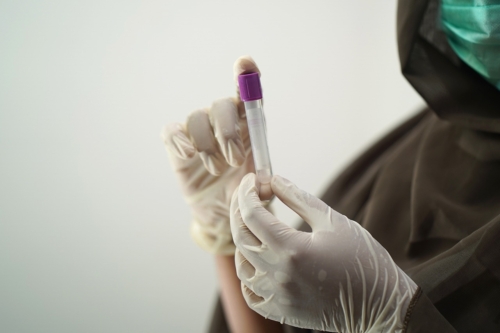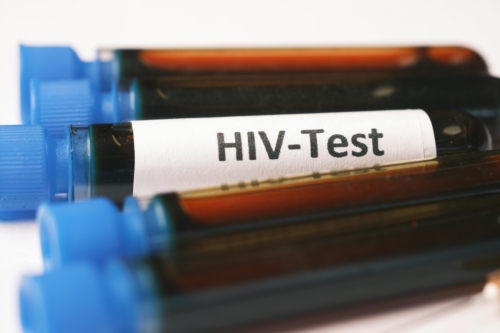
Judge considers medical findings, victim impact relevant in HIV case
X, 62, of Smithfield, N.C., was sentenced Wednesday to 60 days in the Mahoning County jail and five years of probation for failing to tell a woman he dated in Youngstown that he was positive as a carrier for a virus that causes AIDS.
X could have gotten several years in prison after pleading guilty to attempted felonious assault in May. Kevin Day, assistant county prosecutor, asked Judge R. Scott Krichbaum of Mahoning County Common Pleas Court to give X a period of incarceration that the judge deemed appropriate.
The victim gave a long victim impact statement, telling the judge how upset she was when she found out that X was HIV-positive and he never told her.
“I have a right to make my own choices regarding entering into a relationship with a gentleman who has HIV,” she said. She and Xd dated for two years before she found out about his diagnosis, she said. X said he is undetectable, but “To me, there are too many unknowns out there,” she said. She has tested negative for HIV three times since she found out.
A Youngstown police report stated that X lived with the victim in Youngstown until January 2023. She contacted Youngstown police in March 2023 to report that X did not tell her about his HIV diagnosis. They continued to date another six months after that, she said.
The police report stated she discovered he had the virus when she found a bag of his medications in June 2022, did some research and found out it was a treatment for AIDS. She confronted X about it, and he said he didn’t tell her “because of the way she reacted,” the report states.
Day told the judge the defense was going to present a report from a doctor saying X “cannot transmit this disease, but the purpose of the law is to allow those who engage in sexual conduct with others make the determination themselves whether or not they want to engage in sexual conduct with someone who is HIV positive.”
He said the victim is “going to have to live with the thought” for the next eight years of ‘What if I am HIV positive? What if I do have this horrible disease?’ And that is only because the defendant did not tell her he was HIV positive.”
Day said X’s actions “demonstrate a selfishness and lack of regard for others.” After the remark, the judge said, “That’s a fact.” Day said records prosecutors obtained indicate that X told counselors he “doesn’t tell (women he is dating) he is HIV-positive because of the reaction he gets, which indicates this has happened more than one time.”
Day said a prison term for McFarland is appropriate to protect the public, despite X having no criminal record and being a military veteran.
X’s attorney, Damian Billak, talked to the judge briefly about a March letter from the Department of Veteran’s Affairs that indicated that X “remains virally undetectable / virally suppressed.” Billak provided the letter to the judge.
Billak noted that in North Carolina, where Xd lives, the law was changed in 2018 to no longer require HIV-positive people to disclose their HIV status or use a condom as long as they adhere to a treatment plan and are “virally-suppressed” for at least six months.
Billak said he understands why the victim would be concerned about potentially getting HIV, but “fortunately it would seem that everything we have gotten from his medical records would indicate that she won’t ever test positive.”
Krichbaum later read from the Department of Veteran’s Affairs letter Billak provided. It indicates that McFarland was “virally suppressed since May of 2021,” the judge stated. “Defendant reports he was told that he could not transmit the disease as a result of that diagnosis.”
The letter went on to describe a study undertaken from 2007 to 2016 that indicated there was “not a single case of sexual transmission of HIV from a virally suppressed person living with HIV.”
The judge continued reading, “It is noted in a National Institutes for Health press release that ‘in recent years there is an overwhelming body of clinical evidence has firmly established the HIV-undetectable concept is scientifically sound, which means that people who achieve and maintain an undetectable viral load of HIV in the blood by taking and adhering to anti-retroviral therapy as prescribed can not effectively transmit the virus to others.’”
Before announcing that he would not send X to prison, the judge said he hoped the “scientific evidence can help ease some of that uncertainty” the victim feels.
The judge noted that X said he had been told that his HIV “was not communicable,” but he still should have disclosed he had it. He said the victim has suffered the “injury” of her apprehension of possibly contracting the disease, “although it appears scientifically that can’t happen.”
Judge Krichbaum said X is not in the category of the “worst in society” who deserves prison, but X’s probation requires him not to cause or attempt to cause any harm or threat of harm to anyone during his five years of probation.
The law requires him to disclose his HIV diagnosis to anyone he engages in sex with in the future, Krichbaum said. He ordered X to get a psychiatric evaluation at the Forensic Psychiatric Center of Northeast Ohio in Austintown and comply with any recommendations given.
And because of the “serious nature of this offense and the effect it has on the victim,” he ordered X to begin serving 60 days in the county jail immediately. And X was led away to begin serving the sentence.
He got credit for 44 days already served in the county jail awaiting trial, but he still has to serve the entire 60 days in jail, the judge said.



